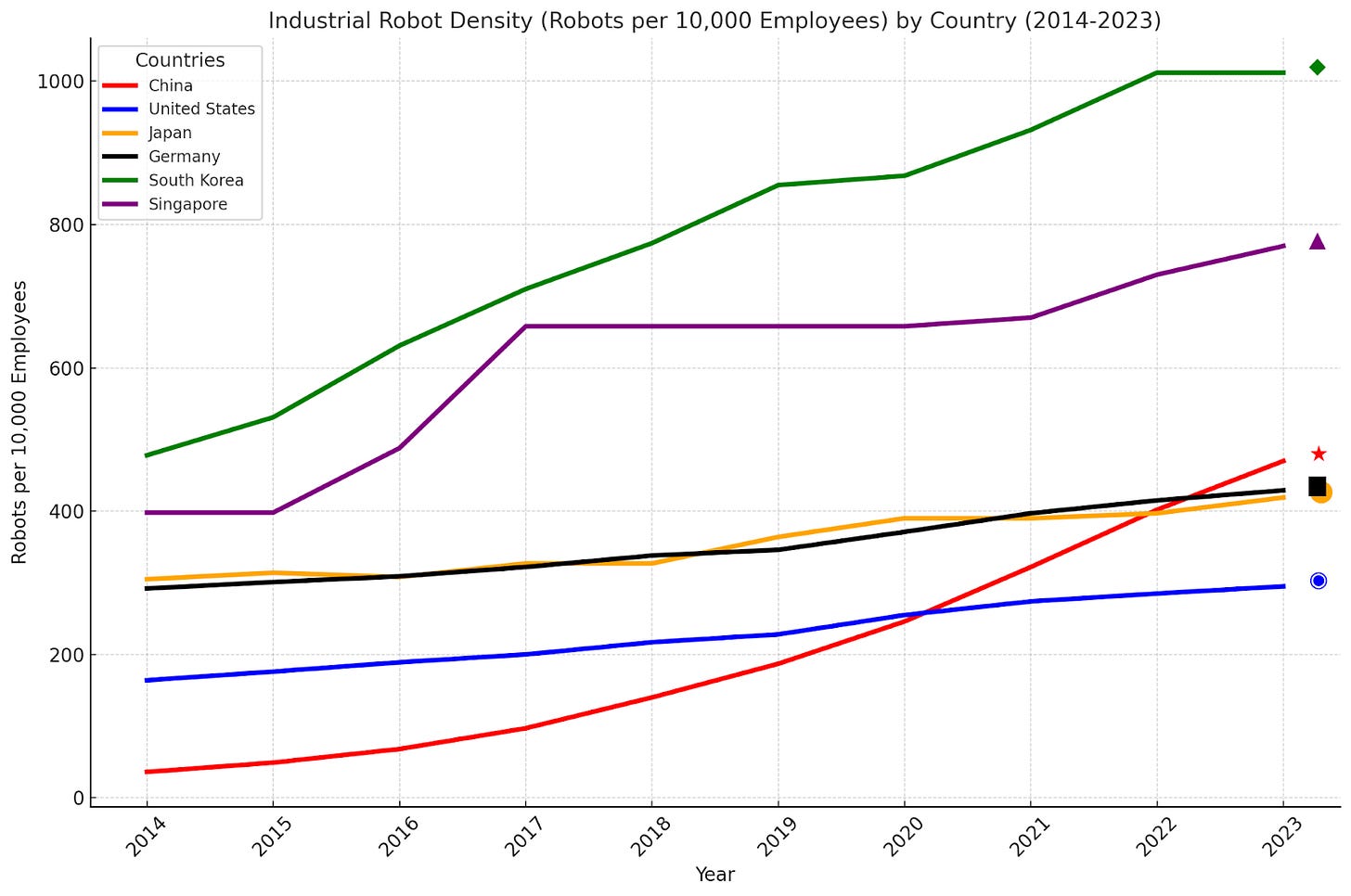Why the West Misses the Bigger Picture on China: The Robolution
While the West focuses on what’s leaving China, Asia is focused on what’s rising within it. And while Asia leads the Robolution, innovators like Elon Musk and the PayPal Mafia remind us that the U.S..
The Western narrative around China is grim. Headlines harp on slowing demographics, concerns about productivity, and an exodus of Western investments amid trade wars and geopolitical tensions. To many, it looks like China’s best days are behind it. But what if we’re focusing on the wrong story?
The rise of robots in China tells a very different tale. In 2013, China’s industrial robot density stood at a humble 35 units per 10,000 workers. By 2024, that figure is set to reach an astonishing 430—surpassing Japan, Germany, and the United States. This isn’t just progress; this is transformation.
What’s happening in China is part of a broader revolution—a robolution. This shift, as predicted by Louis Gave, the CEO of Gavekal, in his 2013 book Robolution, isn’t confined to China. Asia is leading this charge with nations like Singapore, South Korea, Japan, and China setting the pace. South Korea, for example, boasts the highest robot density globally, and Singapore isn’t far behind. Together, these nations are redefining productivity for the 21st century.
But here’s the critical question: why isn’t the West talking about this? Perhaps it’s easier to focus on the familiar narrative of decline and stagnation. But the truth is, automation is reshaping economies. Robots don’t just fill gaps in a workforce; they redefine what a workforce is capable of.
And here’s the fascinating twist: the West is responding. Elon Musk represents America’s reaction to this robolution in Asia. Industries like electric vehicles and aerospace, spearheaded by Musk, are more than just innovative sectors—they’re part of a broader strategy to rewire supply chains and reindustrialize the United States. Musk’s push for manufacturing dominance aligns with a larger narrative of restoring America as an industrial powerhouse.
This shift is also being shaped by the so-called PayPal Mafia, a group of tech leaders, including Elon Musk, Peter Thiel, and others, who are now building what could become the most powerful industrial and technological conglomerate of our era. Their vision goes beyond software, driving breakthroughs in robotics, artificial intelligence, biotechnology, and aerospace. Together, they are laying the foundation for a new technological revolution—one that could redefine not only the United States but the entire world.
This shift validates Peter Thiel’s contrarian thesis: for too long, U.S. innovation was confined to the world of software, stagnating in the realm of atoms—the physical technologies that drive real-world progress. Now, under the leadership of this industrial renaissance, America is reigniting its potential to dominate both the digital and physical worlds.
So here’s the challenge for us all: can we see the forest for the trees? While the West focuses on what’s leaving China, Asia is focused on what’s rising within it. And while Asia leads the Robolution, innovators like Elon Musk and the PayPal Mafia remind us that the U.S. has its own answers to this challenge. The robolution is here, and those who embrace it will define the future.
Thanks for reading,
Guillermo Valencia A
Cofounder of Macrowise
November 25th, 2024




